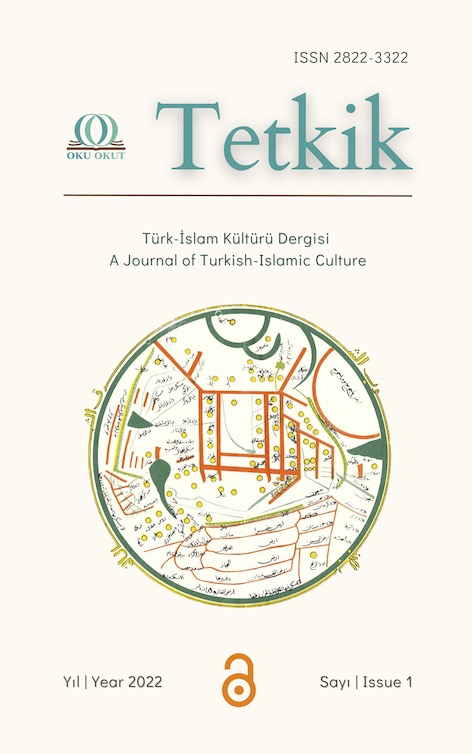Mu‘tezile’nin Nübüvvet Savunusu: Kādî Abdülcebbâr Örneği
Mu‘tazila’s Defense of Prophethood: The Example of al-Qādī Abd al-Jabbār
Author(s): Mikail İPEKSubject(s): Theology and Religion, Islam studies, History of Islam, Contemporary Islamic Thought, Qur’anic studies
Published by: Oku Okut Yayınları
Keywords: Islamic Theology; Mu’tazila; Prophethood; Barahima; Deism;
Summary/Abstract: Prophethood is of great importance in Islamic thought and other monotheistic religions. Since the Muslims value the message of God, they also attribute a relgous value to the prophets who conveyed these messages to people. Nevertheless, throughout history, there have been those who objected to the idea of prophethood from different points of view. The basis of these objections to prophethood is based on Aristotle. There are also currents where this idea embodies a systematic character. The most prominent of these are Barāhima and Sumeniyya, which are disputed about their origins and accepted to be of Indian origin according to the majority. In addition to systems such as Barāhima and Sumeniyya, Ibn al-Rawandī (d. 301/913), his master Abū Isa al-Varraq (d. 247/861), and Abū Bakr al-Razī (d. 313/913) have also managed to come to the fore in some periods of history with their ideas that reject prophethood. These personalities are not only prophethood but also criticized the prophethood of Muhammad, “Khatm Al-Nubuwwa/Last prophet” and the Qur’ān. Today, it is observed that movements such as Deism and Positivism continue the ideas of these denialist movements. Mutakallims such as Jāhiz (d. 255/869) and al-Qādī Abd al-Jabbār (d. 415/1025) from the Mu'tazila tried to defend the prophethood by responding to the objections in question in their own time. Today, movements such as deism and positivism reveal thoughts parallel to the ideas of these denialist movements. The aim of this study is to reveal the importance of the responds given by al-Qādī Abd al-Jabbār from the Mu‘tazila to the criticisms directed at the prophethood in terms of today. It has been determined that the objections to prophethood in the past and the deism and positivism have similiar ideas about prophethood. In this context, it can be said that the defense of prophethood made by al-Qādī Abd al-Jabbār is important, especially that it reduces the doubts of the deism movement and sheds light on our age. Various studies have been written on similar subjects before. Metin Özdemir's work “Mu‘tazila's Defense of Prophethood” and Orhan Aktepe’s article “The End of Prophecy with the Prophet Muhammad” can be given as an example. However, no study has been found that deals with prophecy as a whole. In this respect, Subjects such as the prophethood, “Khatm al-Nubuwwa”, the prophethood of Muhammad, and the i‘jaz (inimitability) of the Qur’ān were discussed together. We believe that the defense of prophethood against the apostates in the Ahl al-Sunnah and Mu‘tazila literature constitutes a very sufficient and valuable infrastructure for the response to the objections of deist movements. Looking at the subject from a historical perspective, it is observed that the idea of deism also appeared in previous periods of history, but was eliminated by the scholars. Therefore, it can be said that deistic thought is not a new movement, and has always been positioned against prophethood in different forms in some periods of history.
Journal: Tetkik
- Issue Year: 2022
- Issue No: 1
- Page Range: 59-94
- Page Count: 36
- Language: Turkish

